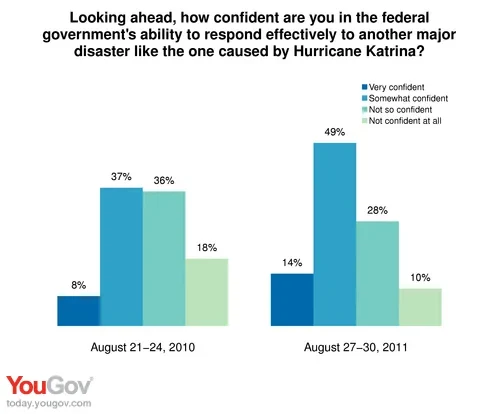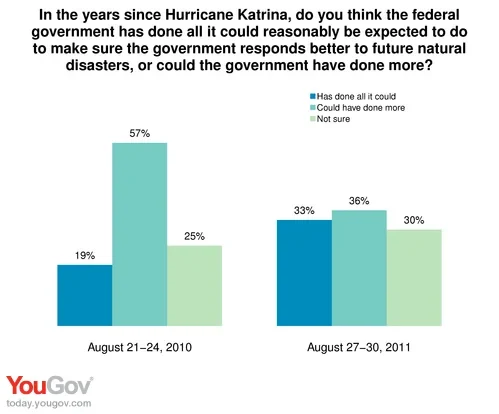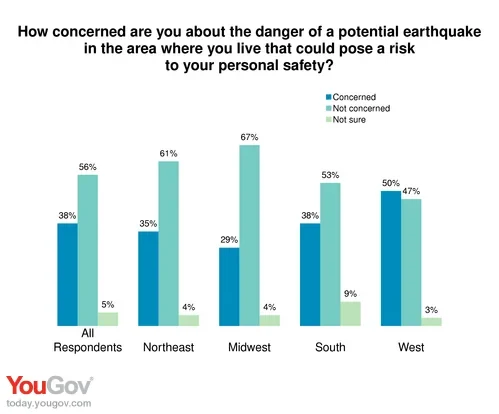Six years after the aftermath of Hurricane Katrina created destruction along the Gulf Coast, Americans feel better now than they did a year ago about the government’s preparedness to handle a major hurricane. In the latest Economist/YouGov Poll, conducted during the weekend when another hurricane — Irene — attacked a different coast, 63% expressed confidence in the government’s ability to handle a major disaster like Katrina, up 18 points in the last year.

Last year a majority had little or no confidence in the government. Today, that percentage has dropped 16 points. Still, 38% express little or no confidence.
Although most Americans express confidence, there may still be more to do. More than a third believes there is still more the government could have done to prepare for disasters. 33% say the government has done what it could to prepare. But a year ago, Americans were even more skeptical. 57% then thought the government could be doing more to prepare.

And government preparedness is definitely better than it was when Katrina struck — at least for 46% of Americans. But 38% see no change and 8% think the government is less prepared than it was then.
The government did face another potential disaster in the days before the poll was conducted: a 5.8 magnitude earthquake centered in Virginia, felt up and down the East Coast, in places that hadn’t had a quake that size in more than a century.
Americans aren’t sure whether or not to expect more quakes like that on the East Coast: 36% expect more, and 36% view last week’s earthquake as an unusual event. And half the country says they are personally not worried about earthquakes where they live. Not surprisingly, concern is highest in the West (50% there are concerned), but more than a third of those living in the Northeast and the South are also concerned.

Photo source: Press Association






